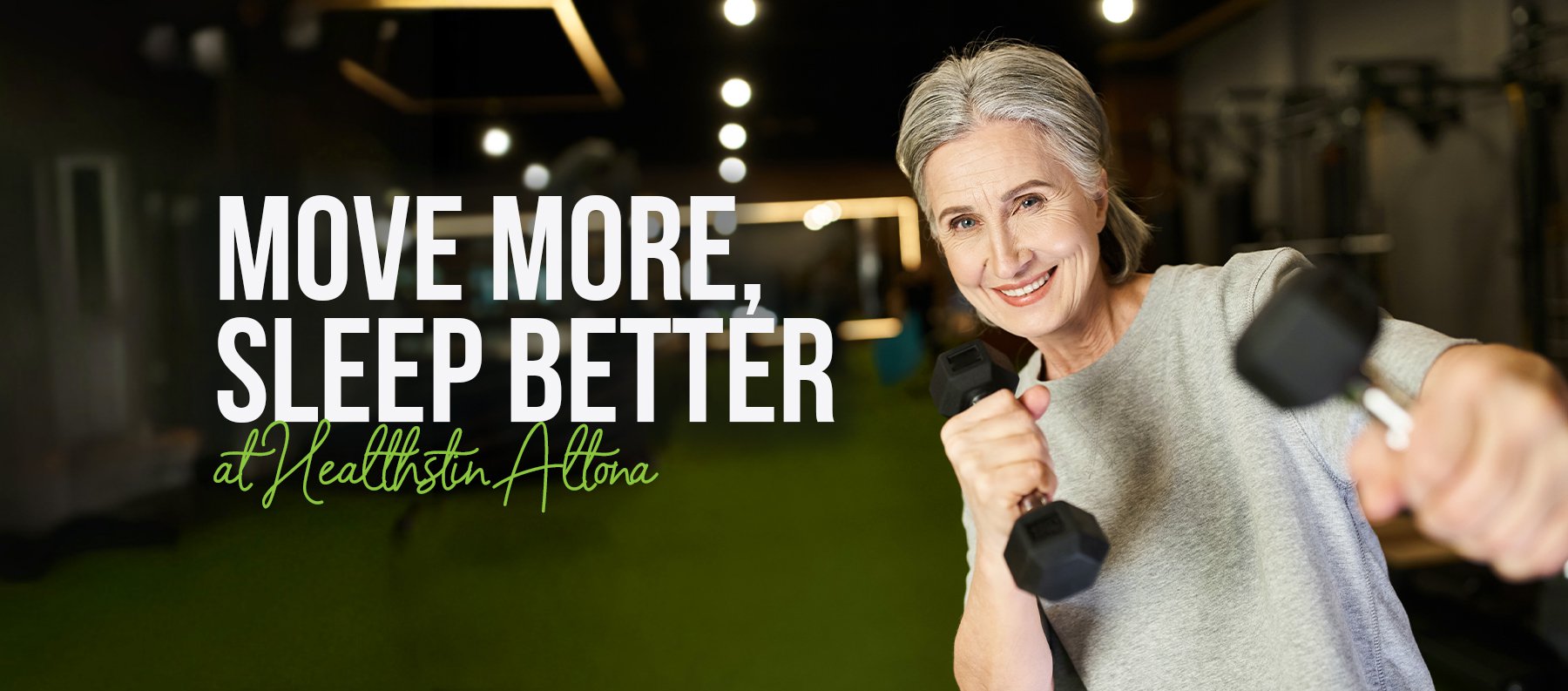Sleep is essential for both physical and mental wellbeing. Yet almost 40% of Australian adults are not getting enough good-quality sleep, according to the Sleep Health Foundation. Factors like stress, sedentary lifestyles, and medical conditions are common contributors. Even worse, long-term sleep deprivation is linked to a higher risk of heart disease, depression, obesity, and type 2 diabetes.
If you’ve been looking for ways to improve sleep quality without relying solely on medication, it might be time to get moving, literally. To commemorate Sleep Awareness Week this August 11-15, Healthstin in Altona is inviting you to take a closer look at the link between physical activity and sleep and why exercise might be the missing piece in your quest for better rest.
Using physical activity to improve sleep
Research shows that regular physical activity significantly improves sleep quality. A national study by the Australian Institute of Health and Welfare found that people who met physical activity guidelines were less likely to report trouble sleeping, compared to those with low activity levels. This is where Exercise Physiology, tailored to your unique needs and health goals, can help.
At Healthstin, our Accredited Exercise Physiologists (AEPs) design safe, effective, and achievable movement plans to help clients manage a range of conditions, from insomnia and anxiety to chronic fatigue and pain, all of which can affect your ability to get a good night’s sleep.
How Healthstin Altona Exercise Physiology can help you sleep better
Here’s how working with an Exercise Physiologist at Healthstin Altona can support better rest:
- Regulates Your Body Clock: Moderate-intensity exercise helps reset your circadian rhythm, your internal sleep–wake clock. This makes it easier to fall asleep and wake up at consistent times.
- Reduces Stress and Anxiety: Exercise stimulates the release of endorphins and lowers levels of cortisol, the body’s stress hormone. This can improve both your mental wellbeing and ability to unwind at bedtime. This is also one way you can use exercise to reduce insomnia.
- Improves Sleep Duration and Quality: Studies show that people who engage in aerobic and resistance training several times a week experience deeper sleep and spend more time in restorative slow-wave stages.
- Manages Pain and Restlessness: If you’re dealing with musculoskeletal pain, arthritis, or neurological conditions, tailored movement through Exercise Physiology or Hydrotherapy can help reduce discomfort and improve relaxation before bed.
Movement therapy for better sleep
Our Allied Health team, based at a modern leisure and aquatic centre, combines Exercise Physiology, Physiotherapy, and Hydrotherapy services in one accessible, community-friendly location.
We offer:
- Personalised programmes designed by experienced AEPs
- Access to the gym and warm-water Hydrotherapy pools
- Immediate availability with no long waitlists
- Funding through the NDIS, Medicare, Department of Veterans’ Affairs (DVA), Workers’ Compensation, CHSP, HCP, and private health funds
Whether you’re struggling with sleep due to stress, chronic illness, or inactivity, we’ll guide you through a sleep-friendly exercise programme that’s sustainable, enjoyable, and designed for long-term impact.
Get exercise therapy for sleep improvement in Altona
If poor sleep is impacting your health, mood, or daily function, you’re not alone. But you don’t have to put up with it.
Let Healthstin Altona help you take the first step towards deeper, more restful sleep with an Exercise Physiology programme tailored to your needs. Call 1300 090 931, visit our Altona clinic, or click this link to book a consultation with one of our Exercise Physiologists.
